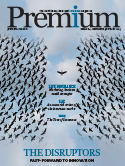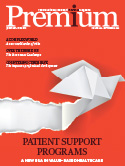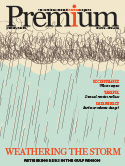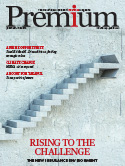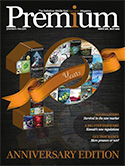Geopolitics and the Impact to Insurance

Geopolitics, technology, innovation, underwriting were among the themes discussed in the latest discussion organised by the General Arab Insurance Federation. A Premium report.
The General Arab Insurance Federation recently held a webinar on the impact of geopolitical issues on insurance and the outlook for the regional industry.
The first part of the session consisted of an overview of the political and security issues impacting the region. Michael Stephens, fellow, Foreign Policy Research Institute and associate fellow at the Royal United Services Institute spoke about foreign policy related to Iran, the security issues prevalent in Lebanon and the presence of the GCC in managing the trade relations across the globe.
“In the short term, the health risk is a consideration for economic development. In the medium term things are looking better. Oil prices will stabilise and diversification into green investment and green technology investment and getting the private sector involved in this. Diversifying energy production away from hydrocarbons,” Stephens advised.
Emphasising on the importance of technology, Omer Elamin, president – Orient Group, said: “We need to invest in technology. I think we have great opportunities when it comes to technology and specifically with SMEs as they have faced many problems when it comes to the pandemic. We started to invest in technology four years ago. We are investing in the future and it lowers expenditure.
“We need to set up a new reinsurance company in the UAE. Once the reinsurance companies disappear the smaller companies cannot keep working. We have seen that some companies have closed. ARIG was a great model in the region. We need an equally huge reinsurance company. The capital invested should not be less than USD3 billion with a 50-50 partnership between the government and the private sector. There should be a compulsory cession of 25 percent to this company, which would allow it to succeed. If we look at the capacity, this will allow us to prevent many obstacles,” he opined.
Speaking about the differences between Arab companies and foreign firms, Amer Daya, senior market executive MENA, Ninety, said the Arab companies and the regulations present in the respective countries were still on a learning curve whereas foreign companies were at least 100 years old, accumulating experience, underwriting skills, refining their business with exposure, learning and serving organisations. “Low natcat exposure has attracted the foreign companies to look at the Arab region. But that has changed, so most foreign companies have shied away from investing further in the Arab world. Foreign companies have mastered the art of underwriting, which is not just putting a price to a risk. It is about understanding the risk first. The focus on technical results in the Arab world is not very old. We look forward to more consolidation in the Arab world. Those companies that consolidate will stay and prosper,” he said.
Commenting on the outlook and opportunities for growth in the future, Khaled Saoud Al Hasan, GAIF board member and group CEO, Gulf Insurance Group, remarked that companies should adapt to less or no dependence on reinsurance and reinsurance commissions. “In the coming years there are many challenges, specifically now. Global reinsurance companies may not continue to give the commissions. For insurance companies to survive and to play a huge role, we need to raise awareness and issue the right laws to limit competition through the right regulatory structure. Technology today plays a big role while dealing with the younger population so the idea of changing the patterns of business need us to change products as well, to reach the best quality of service,” he added.
“Most companies in the Arab world have to conquer cross-selling, in which they are very weak. They have to improve data quality, which is still very poor in the Arab world. Unfortunately in the Arab world we are too distant from clients. We are very close to revenue but too distant from clients. This has to change. Payment systems need to be introduced. The clients today are getting paid by direct debit and other technological channels that do not exist in the Arab world. Claims processes have to change. Signing claims processes with multi-signatures for a simple claim is no longer acceptable. They have to conquer that if they want to succeed,” Daya advised.
The discussion was presided by Chakib Abouzaid, secretary general, GAIF, and moderated by Ahmed Hosni, founder and managing director, BrokNet Group MEA.
Read more:









